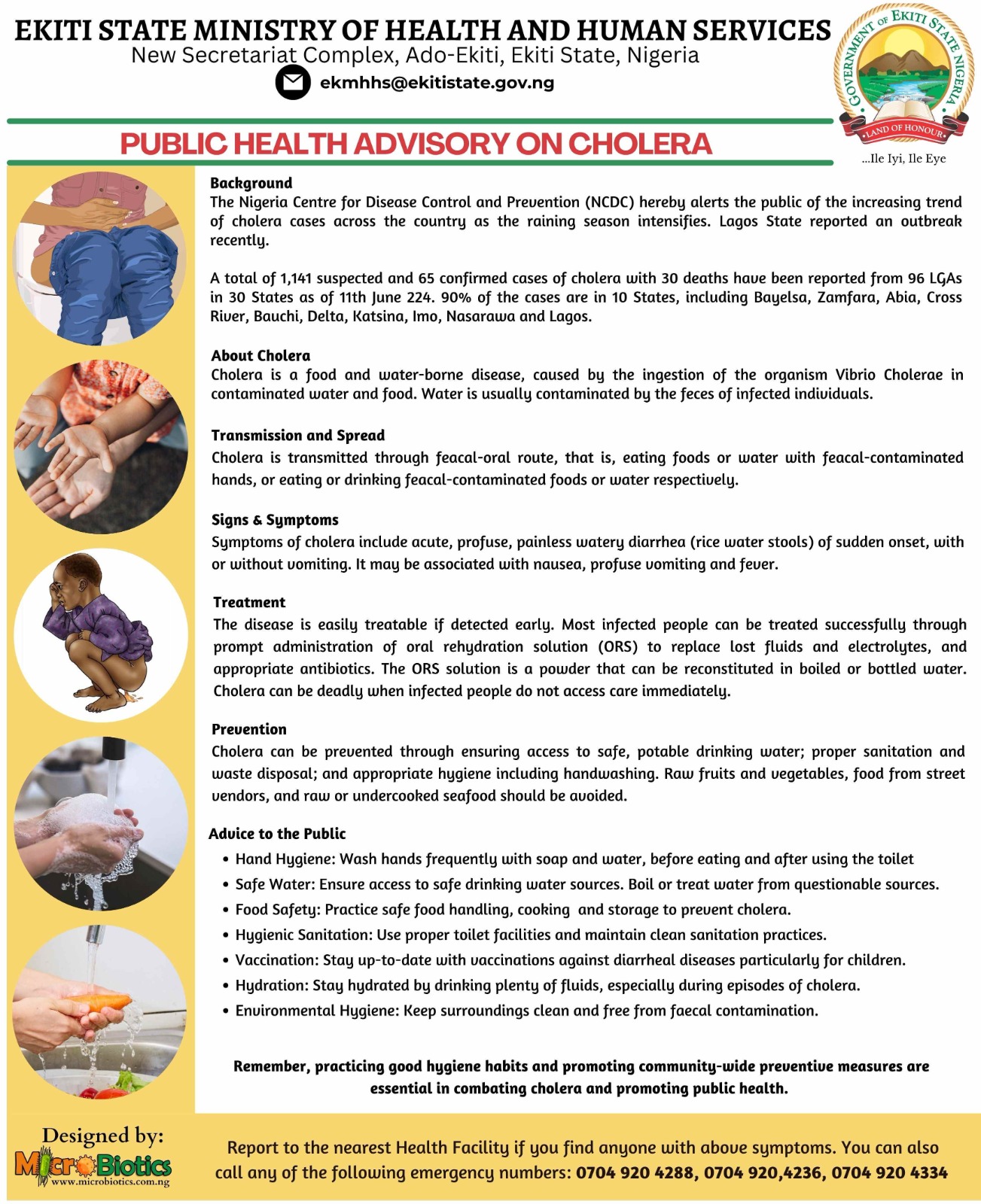
Ekiti State Government has urged Ekiti residents to be on high alert and take precautionary measures to prevent the spread of cholera.


This call was made after the publication of the Public Health Advisory by the Nigeria Centre for Disease Control and Prevention which stated that a total of 1,141 suspected cases and 65 confirmed cases of cholera resulting in 30 deaths have been reported from 96 LGAs in 30 States between the 1st of January to the 11th of June 2024.
In the statement issued by Ekiti State Commissioner for Health and Human Services, Dr. Oyebanji Filani, he noted that Ekiti’s proximity to Lagos, one of the states with a high number of reported cholera cases, has made the advisory in Ekiti imperative.
Dr Oyebanji explained to residents that cholera is a food and water-borne disease caused by ingesting the microorganism vibrio cholerae through contaminated water and food. He added that Cholera is characterised by a sudden onset of acute watery diarrhoea that can lead to death by severe dehydration in its most severe form.
The commissioner counselled that cholera can be prevented by ensuring access to safe and potable drinking water, maintaining proper sanitation and waste disposal practices, using hygienic and proper toilet facilities, and ensuring safe food handling, cooking and storage. He also advised residents to get vaccinated against diarrhoeal diseases, especially children.
Assuring the public of Ekiti State’s readiness to combat a cholera outbreak with no cause for residents to panic, Dr Oyebanji emphasised that the state has an operational readiness strategy based on epidemiologic data, risk assessment, and identified hotspots that can help prevent the outbreak of Cholera in the State through Incident Management with functional areas and pillars. He noted that the State has already established a Rapid Response Team at both State and Local Government levels that will efficiently search for and manage any cases of cholera.
The Health Commissioner also revealed that the State is employing a multi-sectoral approach with deliberate collaboration among various stakeholder groups to curtail community spreading of secondary infections through contact tracing, optimal communication strategy for community engagement and mass sensitisation, adding that emphasis is also on ensuring adherence to standard infection prevention and control measures at both community and health facility levels.


